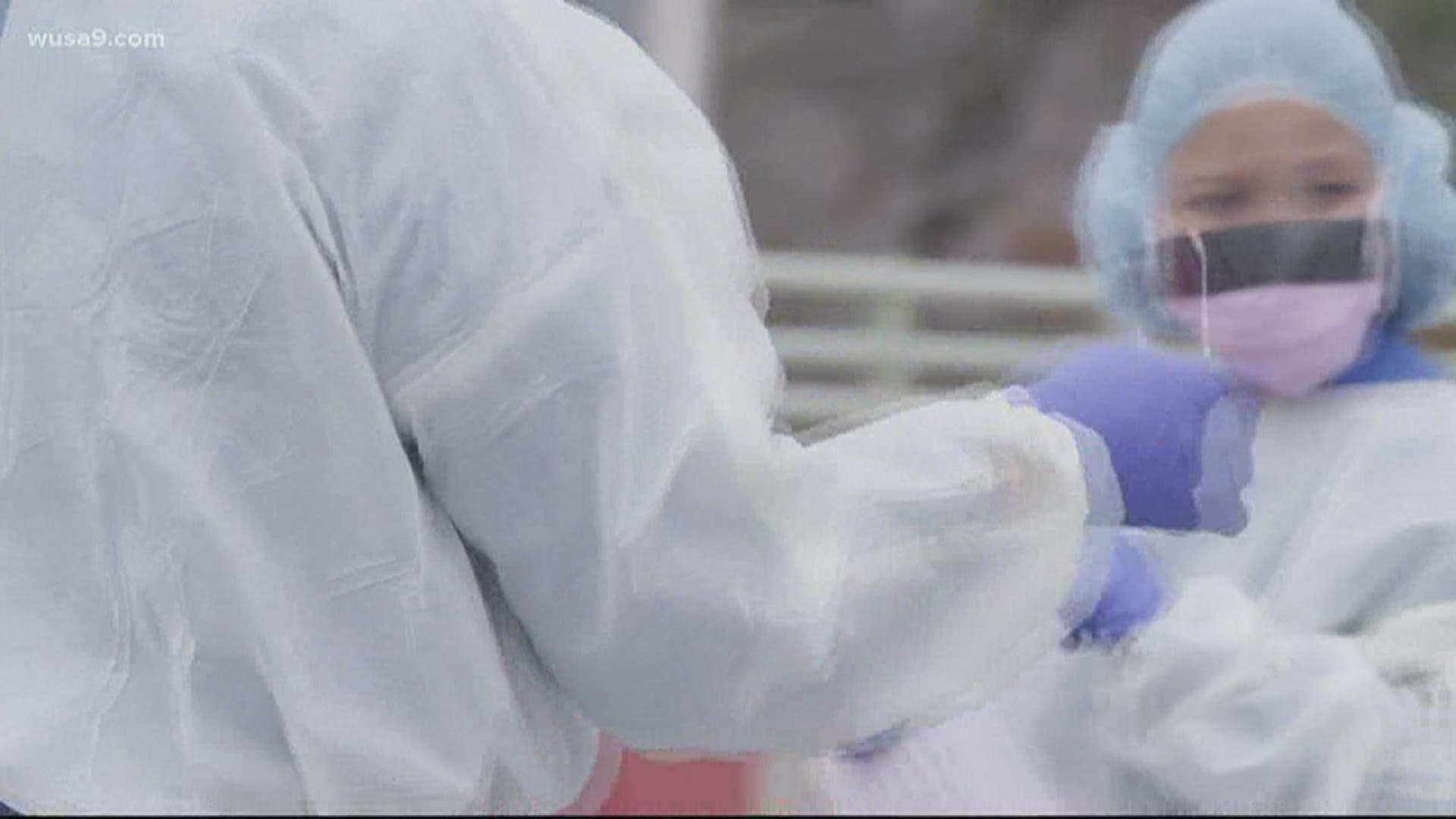BETHESDA, Md. — The National Institutes of Health is recruiting as many as 10,000 volunteers to help determine how many adults in the U.S. have antibodies to the SARS-CoV-2 virus that causes COVID-19.
Volunteers without a confirmed history of coronavirus infection may qualify to take an at-home blood sample, which will then be sent to a lab to be tested for antibodies.
The study by researchers at Dr. Anthony Fauci's National Institute of Allergy and Infectious Diseases is trying to determine how much the virus has spread undetected in the U.S. It will look at which communities and populations have been hit hardest, and could provide critical data for epidemiological modeling.
It's called a serosurvey, and it's one of several going on now in the U.S. and around the world.
"This study will give us a clearer picture of the true magnitude of the COVID-19 pandemic in the United States by telling us how many people in different communities have been infected without knowing it, because they had a very mild, undocumented illness, or did not access testing while they were sick," NIAID Director Dr. Anthony Fauci said. "These crucial data will help us measure the impact of our public health efforts now and guide our COVID-19 response moving forward."
Most testing up to now has looked for the active presence of the virus in people's airways. The NIH study will look for antibodies in your blood.
"An antibody test is looking back into the immune system's history with a rearview mirror," said Matthew J. Memoli, M.D., M.S., principal investigator of the study and director of NIAID's Laboratory of Infectious Diseases Clinical Studies Unit. "By analyzing an individual's blood, we can determine if that person has encountered SARS-CoV-2 previously."
If you're enrolled, you'll get a virtual clinic visit, complete a health questionnaire, submit basic demographic information, and then submit blood samples in one of two ways. If you work at NIH, you can have blood drawn at the NIH Clinical Center. Otherwise, you'll get a Mitra Home Blood Collection Kit that allows you to take a microsample of blood and mail it back.
One caveat: You're not likely to get your results quickly.
"Volunteers should not expect a rapid turnaround of their blood test results, as investigators will provide this information only after weeks or months of analysis to confirm the test’s accuracy. After this period, volunteers may be provided with their personal test results upon request to the study team," according to a Q & A on the institute's website.
If you're interested in the study, contact the clinicalstudiesunit@nih.gov.

